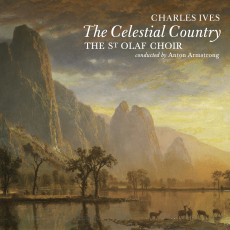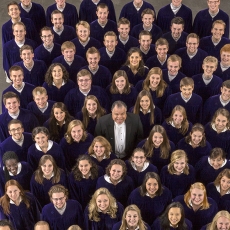St Olaf's Choir - Charles Ives: The Celestial Country - The Sunday Herald
Charles Ives was a remarkable composer, but I can never listen to his music without reflecting that his father must have been even more extraordinary. For it was the restless intellect and musical inquisitiveness of George Ives that instilled in Charles not only his disdain for established musical practice, but also the confidence to write music that cheerfully ignored most of the conventions of the day. George's education of his son should be an inspiration to us all. He built a quarter-tone piano (imagine three black notes between each white one) to explore novel harmonies. He would sing a song in one key while playing the accompaniment in another (try singing Scotland the Brave during God Save the Queen and you'll get the general idea). Most memorably of all, he positioned Charles between two brass bands in the middle of a parade ground and instructed them to march around playing different music in different keys and tempi - an effect that was to resurface in Ives' symphonic music. All of which makes his oratorio The Celestial Country seem quite staid. Written around 1900 by a young, still relatively conservative Ives, it reflects his ten years' service as a church musician and only hints at some of the arcane digressions that would come to characterise his later music. Yet it is by no stretch of the imagination conventional. The somewhat fervent poetry of Henry Alford is set for chorus, organ, strings, and a quartet of string soloists, and is performed here in a superbly clear recording made on location by the St Olaf Choir of Minnesota. There are tiny, harmonically bizarre interludes for cello and organ, and a complete movement for string quartet. A solo violin buzzes enthusiastically around an operatic tenor aria while the opening chorus has a string trio in the accompaniment. Echoes of Palm Court trios, baroque flourishes and revivalist hymns collide enthusiastically but with surprising unanimity of style. Worth exploring.

